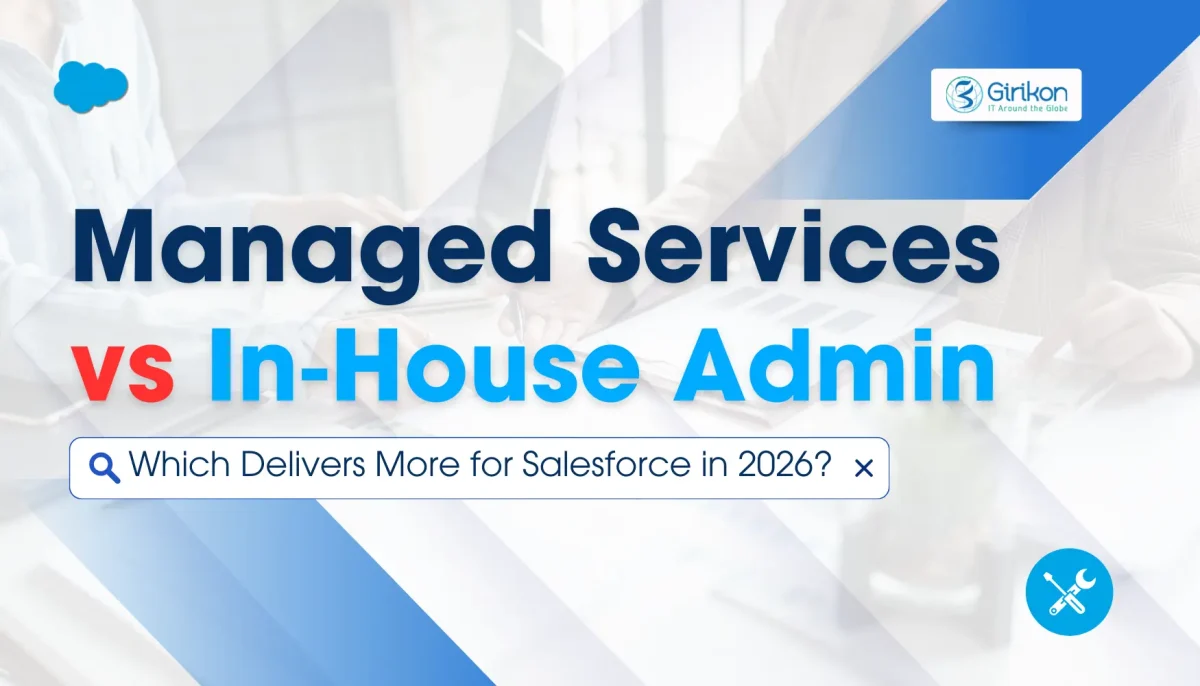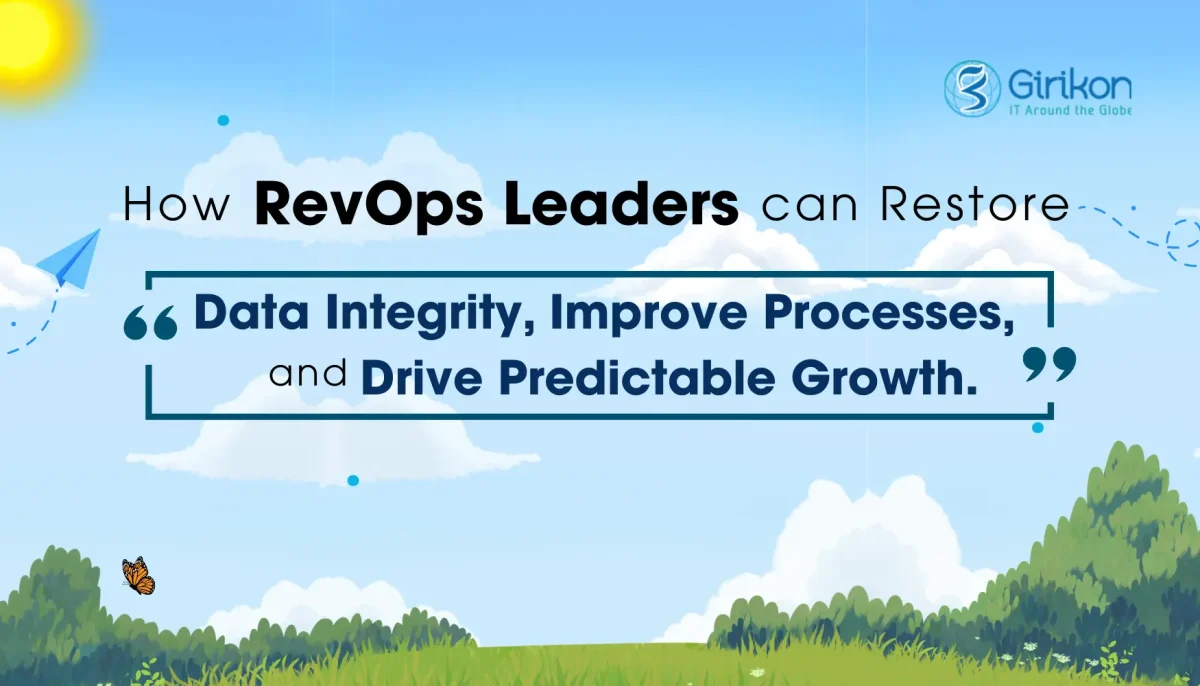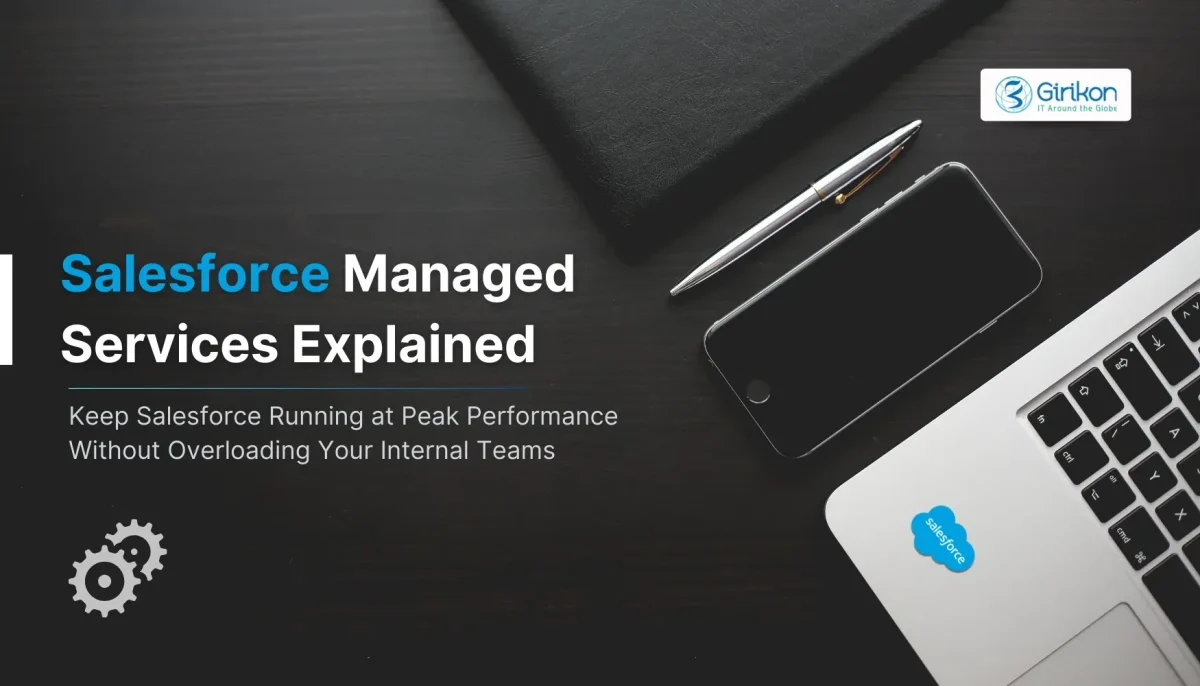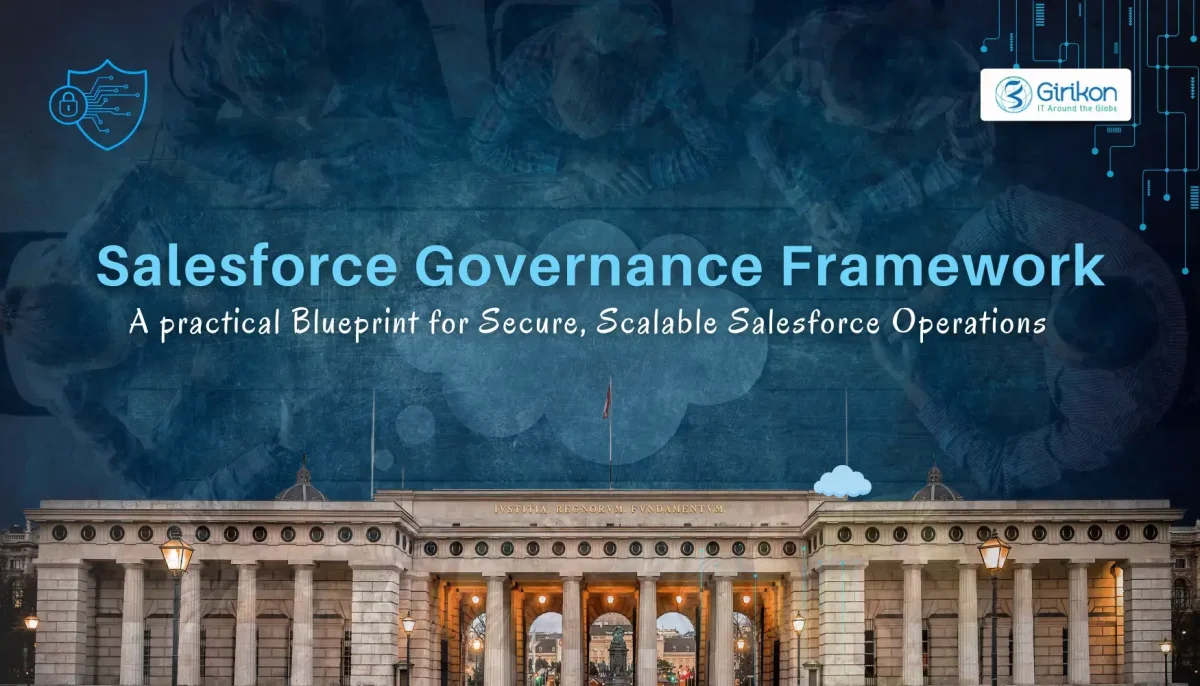Most U.S. based businesses tend to invest in a robust CRM like Salesforce to seamlessly manage their processes. However, attaining success with Salesforce isn’t easy and depends largely on choosing the right Salesforce Consulting Company. The right partner will guide a business to attain success in its ventures by understanding its unique goals and objectives and offering tailored solutions to meet them. This article helps you understand the different types of Salesforce Consultants available and why choosing the right one matters.
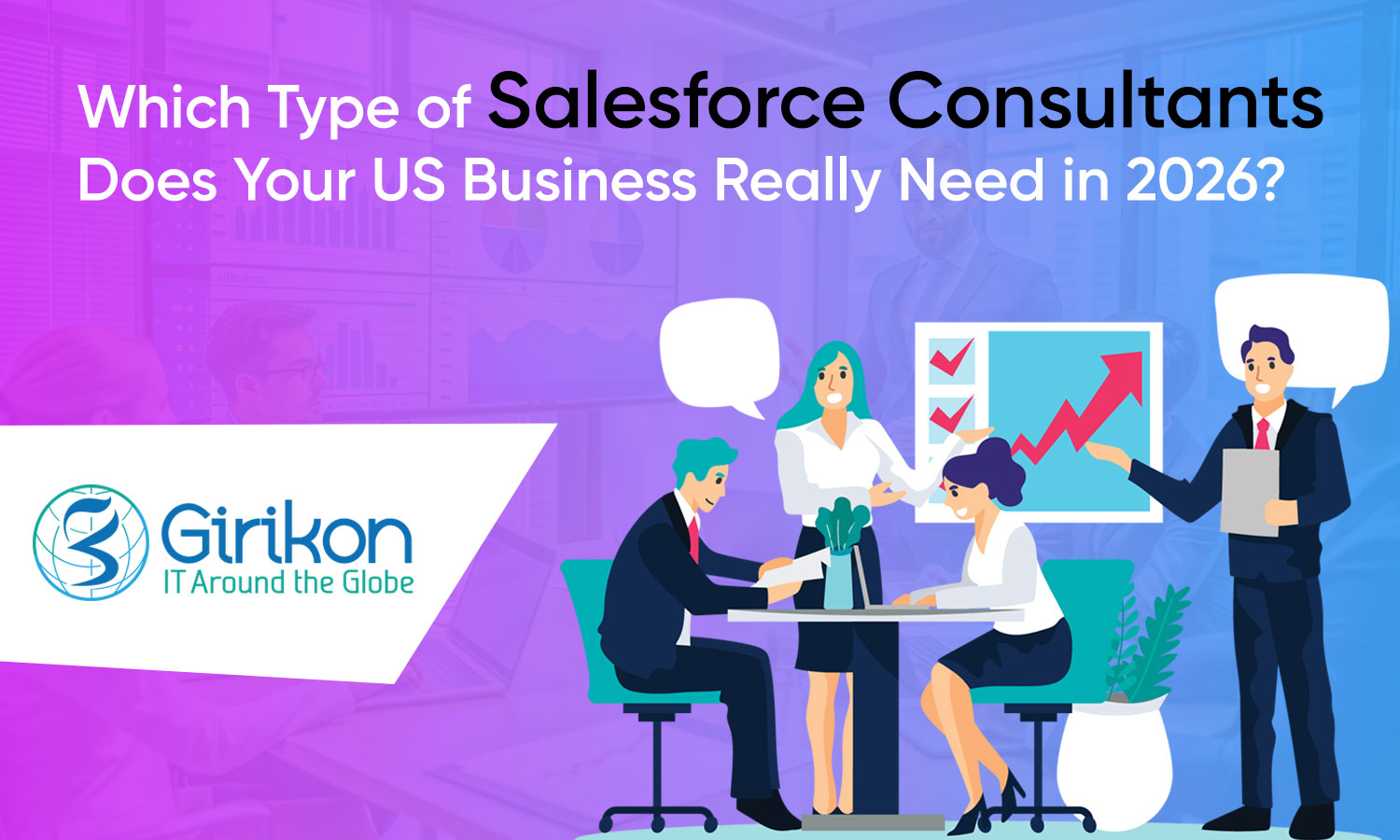
The Factors That Influence the Right Salesforce Partner Choice!
Listed below are some compelling reasons why opting for the right partner makes sense:
Broad Salesforce Ecosystem: Salesforce has evolved from being a simple CRM platform to include all the cloud platforms, as well as integrations including a wide range of industry-specific solutions. Consequently, consultants often specialize in more than one of these domains —businesses will come across roles such as Functional Consultant, Technical Consultant, and so on, each bringing different expertise to the table.
Different Business Goals: The needs of every organization are unique. For instance, a U.S.-based business might need rapid deployment of Sales processes, complex configurations, multi-state service operations, ERP integrations and more. Every business goal calls for a salesforce consultant with the right blend of business knowledge and technical acumen. Choosing the wrong consultant can lead to a sound implementation that fails to fulfill business objectives.
User experience Relies on the Right Fit: In certain sectors such as aviation, public sector, and others, User Experience is paramount. Thus, the consultant must understand end-user behavior, processes, and pain points. A consultant who primarily focuses on features without listing usability and adoption can lead to an underutilized system, irrespective of its technical efficacy.
Cost and Risk: Engaging a consultant who fails to understand your project requirements can lead to misaligned workflows, technical debt, scope creep and poor integrations. This ultimately leads to a decline in ROI. A right consultant, on the other hand, accelerates delivery, improves solution quality, and minimizes risks. An effective consultant must act as a bridge between business objectives and technical execution.
Types of Salesforce Consultants You’ll Encounter in 2026
Mentioned below are the different types of consultants you’ll come across when working on projects.
Functional Consultants: These consultants connect with business stakeholders directly to understand current processes, pain points, and goals. They use declarative tools to interpret these requirements into Salesforce solutions. Their responsibilities often include leading change management, driving user adoption, and holding training sessions. By configuring fields, processes, validation rules, reports and dashboards and more, they always ensure that the solution aligns well with business objectives, not just technical potential.
A functional consultant is idyllic if you’re implementing Salesforce for the first time or rolling out a new cloud service. They’re also a great fit when your business processes are standard but need to be aligned with Salesforce best practices. If your top priorities include user experience, adoption, and ensuring the platform supports your business workflows, this is the consultant type to bring on board.
Technical Consultant: A Technical Consultant, besides bringing deep technical expertise to Salesforce projects, also has specialization in areas such as APIs, Visualforce, Lightning Components, custom integrations and more. These consultants are building tailored applications or advanced features that go beyond the standard capabilities of the platform. They also handle complex data migrations, manage large volumes of data, optimize system performance, and implement erudite business logic.
A technical consultant should be engaged when your business processes are either highly customized or require integration with other systems such as ERP platforms, legacy databases, or IoT solutions. They’re also crucial when you require a custom user interface, complex automation, or logic that extends beyond what out-of-the-box workflows of Salesforce can deliver.
Integration Consultant: An Integration Consultant focusses on connecting Salesforce with other systems such as data warehouses and more. Besides implementing an API-first architecture, middleware solutions, and batch data flows to pave the way for seamless interoperability. Additionally, they manage data migration from old and obsolete systems to Salesforce. This ensures data integrity, precision, and smooth cut-over during transitions.
Such a consultant could fit in with a company that uses multiple systems that must integrate with Salesforce. They are also crucial when migrating from one CRM or legacy system to the other, as they handle data cleaning, conversion, and the transition of historical data. If your business involves multiple external platforms, as well as points of contact, this consultant type ensures everything works within your Salesforce environment.
Strategy Consultant: A Strategy Consultant provides guidance on strategy building, digital transformation, roadmaps, business development, and ROI modeling. Their focus is on positioning your Salesforce investment with broader business goals, thereby ensuring operative change management while promoting user adoption. Unlike technical consultants, they indulge less in hands-on configuration and more fixated on governance, planning and long-term vision. For businesses in the early stages of their Salesforce journey, they will need a strategy consultant. They’re also crucial when businesses wish to align implementation with their enterprise strategy, ensure strong user adoption while designing a model that supports long-term scalability. Ultimately, their goal is to help make Salesforce an integral aspect of your business culture and growth strategy.
Also Read: Salesforce Consultant roles in detail: How they drive salesforce implementations
Optimization Consultant: The need for an optimization consultant arises after initial implementation to manage enhancements, ongoing support, upgrades, and overall health of the system. Besides focusing on continuous improvement, they indulge in fine tuning processes, optimizing performance, training users, and ensuring Salesforce remains in sync with the growing needs of a business. Their role is to keep the system aligned with best practices while adapting it as per the new requirements.
The need for an optimization consultant arises when the Salesforce org of a business is already live and businesses want it to stay aligned with altering business goals. They’re valuable if businesses do not wish to maintain a huge internal team but still require reliable support. As businesses mature and leverage more advanced capabilities, such a consultant ensures your org continues to deliver maximum value.
Mistakes to Avoid When Selecting a Salesforce Consultant (2026 Edition)
When engaging a consultant, the following pitfalls should be avoided:
- One common yet major mistake is opting for a partner merely based on the lowest cost. This often results in higher rework, inexperienced resources, and weak user adoption.
- Next is overlooking industry experience. Even a well-experienced generalist may fail to comprehend the intricacies of U.S private or public-sector workflows.
- Concentrating on implementation rather than adoption. If users fail to use the features of Salesforce, then these features fail to deliver any value.
- Skipping post-implementation support is another mistake. Many consultants disappear after go-live and fail to deliver ongoing optimization – essential for long-term success.
- If you’re working with several systems or legacy data, you need the right migration expert to be involved from the start. Misjudging data-migration complexity can land you in trouble.
- Ignoring UX and the partner experience especially in sectors where agents, customers, and partners expect seamless, spontaneous journeys—anything less hurts user adoption and satisfaction.
- Expecting your consultant to execute your instructions rather than asking hard questions or challenges of assumptions and focusing on driving outcomes might turn out to be a blunder.
Read also: Mistakes to avoid while selecting a salesforce partner
Key Questions to Ask Before Hiring a Salesforce Consulting Company!
To ensure you opt for the right partner, it’s crucial to ask the right questions.
- Begin by evaluating their credentials. Find out which Salesforce certifications they hold. If you’re considering one of the best Salesforce Consulting firms, ask about their partner status. It’s equally important to confirm whether they have industry-specific experience, especially within the U.S. market. This will ensure they understand the expectations of your business environment.
- Ask the consultant to provide case studies that align with the size, industry and goals of your business. It’s important to ensure whether they’ve experience working with U.S.-based businesses, as this brings a know-how of compliance and regulatory guidelines, geographic considerations, and market expectations. Also clarify the exact scope of their previous engagements.
- It’s your right to know who will actually accomplish the work. Besides, you must ask about their delivery model, i.e. whether they follow an offshore, in-house or a hybrid approach — and how they handle communication and governance. This is mainly critical when working across different U.S. time zones or connecting with teams spread across multiple states.
- It’s crucial to understand how the consultant is planning to drive user adoption. Elucidate what CRM design-thinking principles they apply, especially if offering a seamless user experience makes sense for your business. It’s also significant to understand how they intend to phase the rollout, gather response from users, and reiterate the solution to ensure continuous enhancement.
- It’s equally important to discuss the kind of support they will offer after the system goes live. Ask about their support model and how they intend to handle ongoing optimization, updates, or upgrades. Also, inquire about their strategy to uphold data quality, tracking system health, and ensuring regular enhancement. Finally, see if they could provide performance metrics, clearly defined KPIs, SLAs, to measure the efficacy of their post–go-live support.
- It’s significant to understand the consultant’s cost model. Also clarify the measures they undertake for mitigating risk to prevent issues like scope creep, integration challenges, or reduced user adoption. You should also ask about their governance framework, including how they manage milestones, and more to keep the project on track.
A Step-by-Step Process to Choose the Right Consultant
Here’s how you can pave the way for your consultant selection:
- Define your Business Outcomes: Begin by classifying your expectations and how Salesforce can help you accomplish the same in the near future. These goals must be measurable – for instance increasing upsell revenue, minimizing service response times, or maintaining a consistent customer experience.
- Map the skills you need: Identify which consultant expertise aligns with your business goals. Figure out whether you need functional, technical, or strategy-focused skills based on your processes, complexity, and outcomes. Ensuring the right fitment ensures your implementation ropes both business needs along with long-term growth.
- Shortlist and Evaluate Partners: Create a list based on relevant experience, credentials, and past work. Review delivery models, case studies, and verify their tactics to support and adoption. Always seek references from U.S. organizations in your sector or of same size in order to validate their credibility and experience.
- Define Deliverables: Make sure your engagement contract clearly reflects project expectations. This should include deliverables and timelines, defined duties for your team, as well as consultant besides a clear adoption and training plan. In case data migration is involved, make sure to document the approach systematically. Include a post implementation support and optimization plan, along with the key metrics to measure project success.
- Align with User Experience: If your focus is on offering a great user experience, it’s crucial to ensure that the partner agrees with this approach. They should keep end-user research and creative UX design over functional delivery, and attention to agent experiences wherever pertinent. Equally crucial is their approach to change management, training, and more, to keep users supported.
Read also: 8 Tips for choosing the best Salesforce consulting partner
Final Words!
Selecting the right type of Salesforce implementation partner or consultant isn’t all about cost or credentials. Rather, it’s about associating with a partner whose strengths align with your business goals, user expectations, and long-term CRM vision. Your business should partner with someone who not just understands Salesforce, but also your target audience and industry trials. They should also learn to design solutions that your teams will embrace, your customers will value, and your leadership will expect to deliver ROI. So, make a wise choice of your consultant type, ask relevant questions, and set up strong authority to enable a seamless and high-impact journey. You must look for partners like Girikon – one of the Best Salesforce Consultants of 2026 that can walk an extra mile with you and help you attain your goals.

 +1-480-241-8198
+1-480-241-8198 +44-7428758945
+44-7428758945 +61-1300-332-888
+61-1300-332-888 +91 9811400594
+91 9811400594